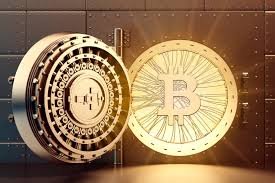Should I Be Tempted to Invest in Bitcoin? ( Problems in investing in bitcoin Part -1)
PROBLEM #1: YOU LOSE MONEY AFTER INFLATION (NEGATIVE REAL RETURNS)
.jpeg)
When you invest in bitcoins (or gold, or oil, or other commodities, or any other currency, or fine art), you are betting the farm on price appreciation alone. Or rather, you’re betting that the price of bitcoins will go up compared with the U.S. dollar. What this means is, bitcoins are different from more conventional investments like stocks, bonds and real estate. That’s because conventional investments offer the chance to generate cash.
As an example, stocks are a slice of business ownership. Businesses exist to earn a profit. As an owner of that business, you are entitled to a slice of that profit.
.jpeg)
That profit can either be re-invested into the business (to increase the value of the business) or paid to investors as dividends. Either way, a stock generates cash — ultimately enriching those who own shares.
The same is true for bonds. Bonds spit out cash (usually twice a year). With a bond, you (usually) get back your original investment, plus interest.
Despite their volatility, commodities do not outpace inflation. And that’s before fees!

Unfortunately, you are likely looking at a negative real return after expenses with an investment like bitcoins. Why? Because it costs money to get into bitcoins. You must “buy” them, and you won’t be able to buy bitcoins at their value. You’ll have to pay a little extra; otherwise, the person selling you the bitcoins (or gold, etc.) has no incentive to do so.
Not only must your investment appreciate at the rate of inflation, but it must also go above and beyond inflation to make up for the transaction costs. Trust me when I say this is rarely the case. Most commodities increase at the rate of inflation. Further, currency doesn’t increase in value at all — because that’s exactly what inflation is — a decrease in the value of currency!
On average, economies grow. A growing economy can raise the demand for goods and services. This can cause prices for said goods and services to increase. Moreover, entities issuing currency usually "print" more currency. This devalues that currency, requiring more of the same currency to be required for the same good or service.
These two factors – a growing economy and the printing of more money – can cause inflation. Therefore, an investment in currency, by its nature, should not be able to grow with inflation. So, not only does your investment in currency lose money because of inflation, but your investment also loses from the bid/ask spread – the price of buying into a different currency.
In short, bitcoins and similar investments are at a big disadvantage when it comes to generating an investment return. Bitcoins don’t generate cash like stocks, bonds and rental real estate do — and they have the added challenge of never even being able to keep up with inflation!
Good luck
Thank you 😉
Hi! I am a robot. I just upvoted you! I found similar content that readers might be interested in:
https://www.kiplinger.com/article/investing/T015-C032-S014-should-i-be-tempted-to-invest-in-bitcoin.html
Congratulations @sidhart1222! You received a personal award!
Click here to view your Board of Honor
Do not miss the last post from @steemitboard:
Congratulations @sidhart1222! You received a personal award!
You can view your badges on your Steem Board and compare to others on the Steem Ranking
Vote for @Steemitboard as a witness to get one more award and increased upvotes!